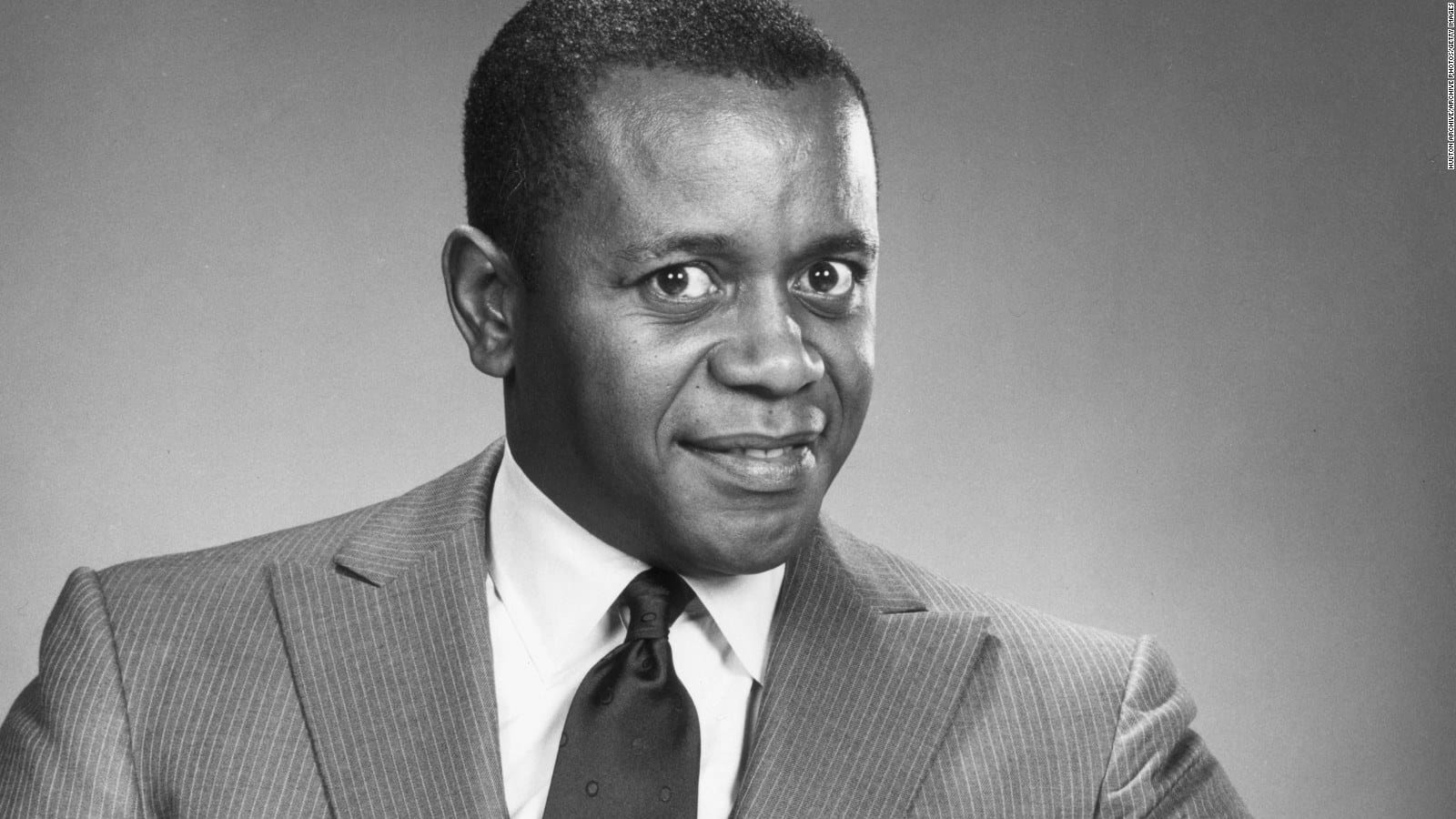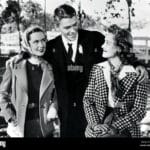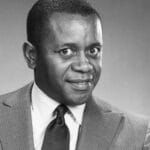Get ready to meet Flip Wilson, the hilarious comedian who made his mark with his unforgettable character, Geraldine. We’ll take a fun dive into Flip’s life and uncover some amazing facts you probably didn’t know about this comedy legend. We’ll explore his rise to fame, the stories behind his iconic jokes, and the enduring legacy he left on the world of entertainment. So, buckle up and get ready to be entertained as we unveil the man behind the laughter: Mr. Flip Wilson!
Captivating Facts About Flip Wilson
Flip Wilson, a name synonymous with laughter and groundbreaking television, wasn’t just a comedian – he was a force of nature who altered the entertainment landscape forever.
Breaking Barriers, One Laugh at a Time
Can you imagine a time when a Black man leading a prime-time variety show was unheard of? That was the reality before Flip Wilson came along. His show, “The Flip Wilson Show,” premiered in 1970, instantly becoming a massive hit and making him the first African-American to achieve such success. This wasn’t just a win for Wilson, it was a cultural earthquake, cracking open the door for greater diversity and representation in entertainment.
More Than Just Funny
Sure, Flip was a comedic genius, but he was also a multi-talented performer. He could sing, he could act, and his hosting skills were top-notch. This versatility allowed him to seamlessly transition between comedy sketches, musical performances, and interactions with celebrity guests on his show. This wasn’t a one-trick pony – Flip was the whole stable!
“The Devil Made Me Do It!”: A Catchphrase is Born
If you’ve ever heard that phrase, you’ve experienced the cultural impact of Flip Wilson. This line belonged to Geraldine, one of Flip’s most iconic characters. Geraldine wasn’t just a character; she was a phenomenon. She was sassy, she was relatable, and she spoke to a generation. Even today, Geraldine remains a pop culture reference point, a testament to Flip’s ability to create characters that transcend time.
A Heart of Gold: Flip’s Philanthropic Side
Flip Wilson’s generosity went beyond the stage. He understood the power of his platform and used it to give back to his community. He supported various charities and was known for his philanthropic endeavors. He wasn’t just making people laugh; he was making a real difference in the world.
Paving the Way: Flip’s Enduring Legacy
Flip’s success had a profound ripple effect. He didn’t just open the door for other Black entertainers; he kicked it wide open, proving that humor had the power to bridge racial divides. His influence can be seen in the generations of comedians who followed, inspired by his talent, his courage, and his unwavering commitment to making people laugh.
Master of Impressions: Channeling Other Personalities
Flip could morph into anyone, from the legendary boxer Muhammad Ali to the then-president Richard Nixon. His impressions weren’t just funny; they were spot-on, showcasing his incredible ability to observe and embody different personalities. This talent added another layer of entertainment to his routines, leaving audiences both amazed and in stitches.
Grammy-Winning Humor: Critical Acclaim
In 1970, Flip took home a Grammy Award for Best Comedy Recording for his album, “The Devil Made Me Buy This Dress.” This award cemented his place not only as a comedic force but also as a respected figure in the music industry.
A Natural Charmer: Connecting with Audiences
What truly set Flip Wilson apart was his undeniable charisma. He had a unique ability to connect with audiences, making them feel like they were part of the joke. He was approachable, he was genuine, and his infectious laughter was simply irresistible. This natural charm transformed him into a beloved household name.
The Road to Success: Overcoming Obstacles
Flip’s journey wasn’t always easy. As a Black comedian navigating a segregated industry, he faced prejudice and obstacles. Yet, his talent, determination, and unwavering belief in himself propelled him forward, proving that even in the face of adversity, laughter can prevail.
Flip Wilson’s legacy is a testament to the power of laughter, the importance of representation, and the impact one person can have on the world. He wasn’t just a comedian; he was a pioneer, a philanthropist, and an inspiration to millions.
Why Was Flip Wilson Called Flip?
We already know Flip Wilson wasn’t born with that name. He started life as Clerow Wilson Jr., born on December 8, 1933, in Jersey City, New Jersey. So how did “Clerow” become the iconic “Flip?”
It likely started long before the bright lights of Hollywood, back when Wilson was just a young man serving his country in the United States Air Force. Life in the barracks can be tough, and soldiers often find ways to keep their spirits up. For Wilson, it was his natural knack for storytelling and his boundless energy that brought laughter to his fellow soldiers. They started calling him “Flip,” perhaps because his energy could flip a switch and turn any dull moment into a fun one.
When Wilson decided to pursue a career in comedy, he must have known he needed a catchy stage name. Choosing “Flip” was a no-brainer. It fit him like a glove – short, snappy, and unforgettable. Plus, it carried all those positive memories from his time in the service.
But the name “Flip” wasn’t the only thing that propelled him to stardom. Wilson had a unique comedic style: a blend of sharp wit and insightful observations about everyday life. He was a natural storyteller, drawing audiences in with his infectious energy and hilarious tales.
His talent couldn’t be contained to the stage for long. Wilson started making appearances on popular TV shows like “The Tonight Show with Johnny Carson” and “The Ed Sullivan Show.” Audiences fell in love with his infectious laugh and relatable humor.
Then came 1970, a pivotal year for Wilson and for television history. That’s when NBC decided to give him his own show, “The Flip Wilson Show.” This wasn’t just another variety show; it was groundbreaking. Wilson became the first African American comedian to host a successful weekly variety show, breaking down barriers and opening doors for other Black performers.
The show was a smash hit, featuring a diverse cast of characters and memorable skits. Perhaps the most iconic character to emerge from the show was Geraldine, a sassy, no-nonsense woman who became synonymous with Wilson’s comedic genius. Geraldine’s catchphrase, “The Devil made me do it!” became a national sensation, further cementing Wilson’s place in pop culture history.
Flip Wilson’s journey from barracks jester to comedy legend is a testament to the power of natural talent, hard work, and a well-chosen nickname. He proved that humor could transcend racial boundaries, bringing laughter and joy to millions across the country.
Was Flip Wilson in the military?
Yes, Flip Wilson served in the U.S. Air Force. He enlisted at the young age of sixteen, even though the minimum enlistment age was eighteen. It was during his time in the Air Force that his comedic talent began to blossom. His fellow airmen quickly noticed his knack for storytelling and his ability to make them laugh, even in the midst of the challenges of military life. They gave him the nickname “Flip,” which he would later adopt as his stage name.
What jobs did Flip Wilson have?
Before he became a comedy icon, Flip Wilson held various jobs to make ends meet while he honed his comedic skills. After being discharged from the Air Force in 1954, he worked odd jobs to support himself while performing at small clubs. He eventually began touring on the “Chitlin’ Circuit” – a network of venues in African American communities across the United States. It was during this time that Wilson refined his act and developed his unique comedic style, connecting with audiences through shared experiences and relatable humor.
Did Flip Wilson appear on Laugh-In?
Yes, Flip Wilson was a regular on Laugh-In, the popular comedy sketch show, from 1968 onwards. This was a significant accomplishment for an African American comedian at the time, as opportunities for Black performers on mainstream television were limited. Wilson’s appearances on Laugh-In helped to break down racial barriers and showcased his comedic talent to a wider audience.
His memorable characters, including Geraldine and Reverend Leroy, became audience favorites. Geraldine, in particular, became a cultural phenomenon with her signature line, “The Devil made me do it!”
Where does the nickname Flip come from?
The nickname “Flip” originated during Wilson’s time in the U.S. Air Force. His fellow airmen, amused by his energetic and often unpredictable personality, dubbed him “Flipped Out.” This nickname was eventually shortened to “Flip,” which he embraced as his stage name when he began his comedy career. The name perfectly captured his vibrant personality and his ability to turn any situation into an opportunity for laughter.
What was Flip Wilson’s net worth when he died?
When Flip Wilson passed away in 1998, his net worth was estimated to be around $6 million. He had achieved significant financial success through his stand-up comedy, his groundbreaking television show, and his various other entertainment projects.
Why did The Flip Wilson Show get cancelled?
“The Flip Wilson Show,” while wildly popular initially, faced a decline in ratings in the mid-1970s. There are several theories about why the show was ultimately cancelled in 1974. Some argue that the variety show format, immensely popular in the late 1960s and early 1970s, was losing its appeal as viewers’ tastes changed. Others suggest that Wilson’s demands for a higher salary created budgetary constraints for the show. Additionally, the emergence of new, competing programs likely contributed to the show’s declining viewership.
Where did the phrase “the devil made me do it” come from?
The phrase “the devil made me do it,” often used humorously as an excuse for bad behavior, has a long and interesting history. It has its roots in the Middle Ages, a time when belief in demonic possession was widespread. People would sometimes blame the devil for their actions, attributing their misdeeds to external, demonic influence.
Comedian Flip Wilson repopularized the phrase in the 1970s through his character, Geraldine, who would utter the line after engaging in some kind of mischief. Wilson’s comedic use of the phrase, stripped of its darker, historical connotations, turned it into a widely recognized and lighthearted saying.
Who inherited Richard Pryor’s net worth?
While not directly related to Flip Wilson, the question of who inherited Richard Pryor’s net worth is an interesting case study in estate law and family dynamics. Pryor, a comedic force himself, passed away in 2005. His widow, Jennifer Lee Pryor, inherited the majority of his estate, which was estimated to be around $40 million. Pryor’s children from previous marriages contested the will, but the court ultimately upheld Jennifer Lee Pryor’s right to manage the estate.
Who said the devil made me do it?
While the phrase “the devil made me do it” has been around for centuries, it was comedian Flip Wilson who gave it a second life in the 1970s. His character Geraldine’s frequent use of the phrase, always delivered with perfect comedic timing, transformed it into a cultural catchphrase.
It’s important to note that while the phrase is often used humorously, the concept of demonic influence and the nature of good and evil are subjects of ongoing theological and philosophical debate.
Key Points About Flip Wilson:
- Broke barriers: First African-American to lead a prime-time variety show (“The Flip Wilson Show”).
- Multi-talented performer: Comedian, singer, actor, host.
- Iconic character: Geraldine, a sassy and relatable persona.
- Philanthropic endeavors: Supported various charities and gave back to his community.
- Paved the way: Inspired generations of comedians and promoted diversity in entertainment.
- Master of impressions: Performed spot-on impersonations of celebrities.
- Grammy winner: Won a Grammy in 1970 for his comedy album (“The Devil Made Me Buy This Dress”).
- Natural charm: Connected with audiences through his approachable and infectious personality.
- Overcame adversity: Faced prejudice but persevered through talent, determination, and unwavering belief.
- Legacy: A pioneer in comedy, representation, and philanthropy.
- Unlock Water’s Symbolism: A Cross-Cultural Exploration - April 20, 2025
- Identify Black and White Snakes: Venomous or Harmless? - April 20, 2025
- Unlocking Potential: Origins High School’s NYC Story - April 20, 2025















